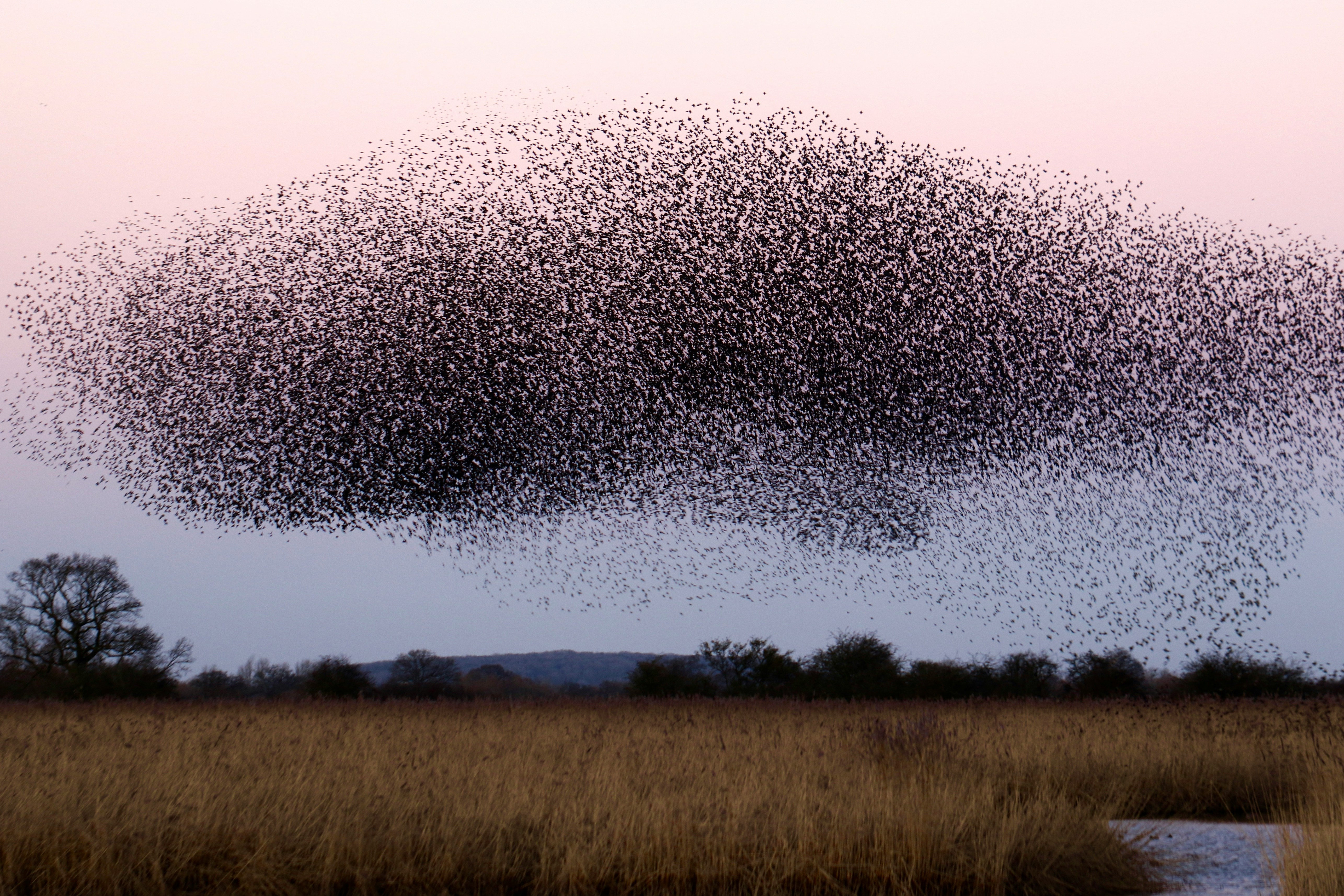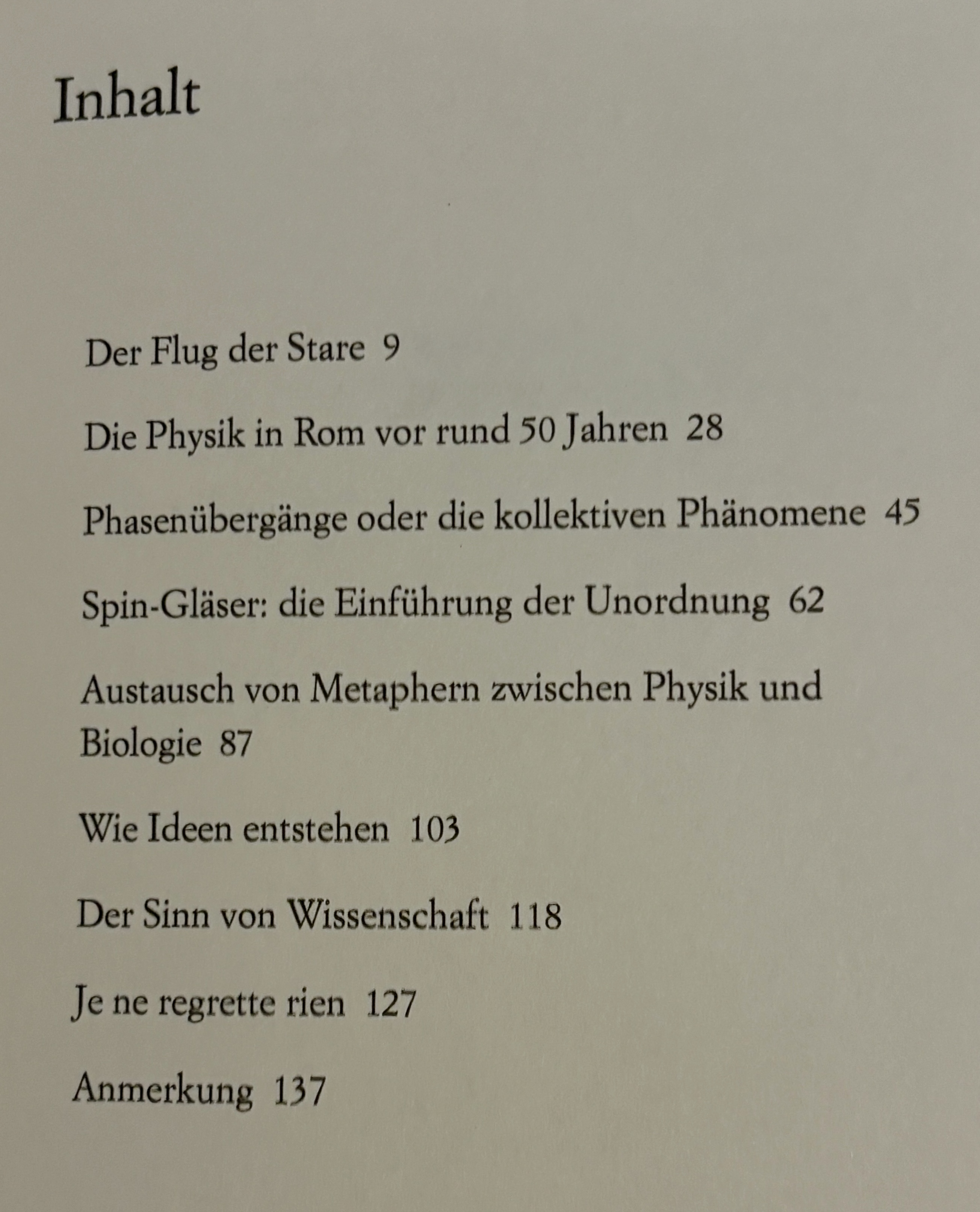
In a very casual tone, Giorgio Parisi reflects on his journey through physics, complex systems and the nature of scientific discovery. The title, In a Flight of Starlings: The Wonders of Complex Systems, comes from one of his studies on how flocks of birds move in remarkable unison. This is a metaphor for the broader theme of the book: how simple local rules can generate collective, emergent behavior.

Parisi connects this to his lifelong work in statistical physics: Particles, like starlings, interact only with their nearest neighbors, yet give rise to macroscopic order (or disorder). Out of these interactions emerge phenomena such as temperature, magentiaztion, or turbulence - properties that do not exist on the level of description of individual particles.
Especially interesting are so called phase transitions, moments when a small change in temperature or energy reorganizes an entire system: Water freezes, a magnet loses its magnetization. Those transitions are either type one or type two, depending on their attributes. And as the system approaches the critical point, it behaves in a remarkable way: fluctuations begin to spread across all scales. A small local change can suddenly influence the entire system. Parisi and others discovered that at these critical points, completely different systems - magnets, fluids, even social networks - obey the same mathematical laws. This is called universality. It suggests that nature follows deep and shared principles (which sounds very similar to what Geoffrey West talks about in Scale).